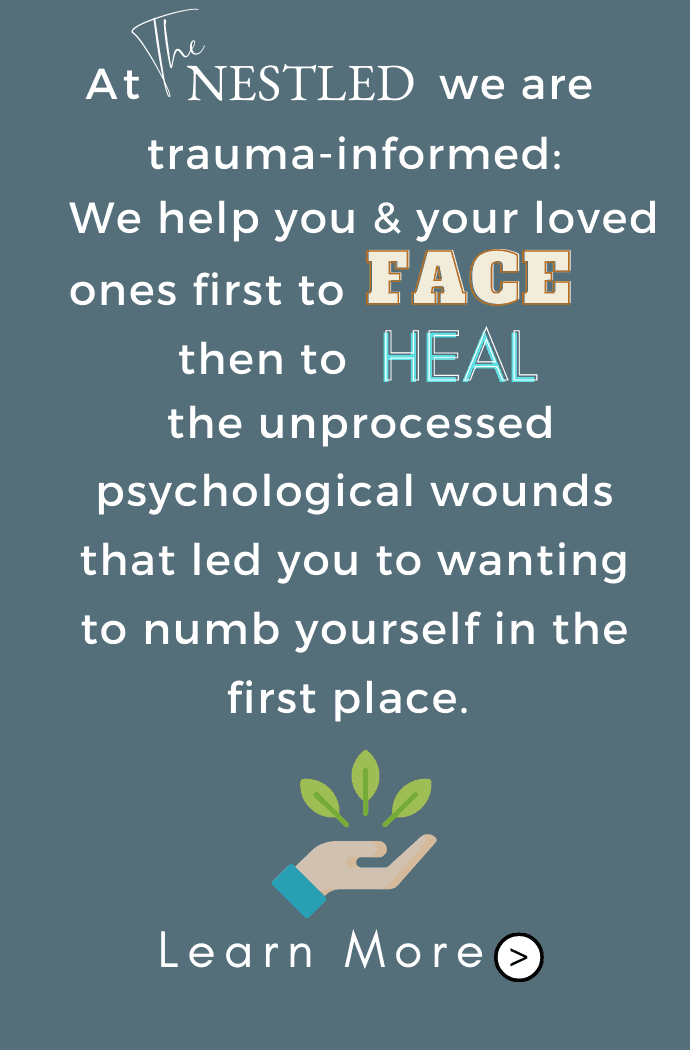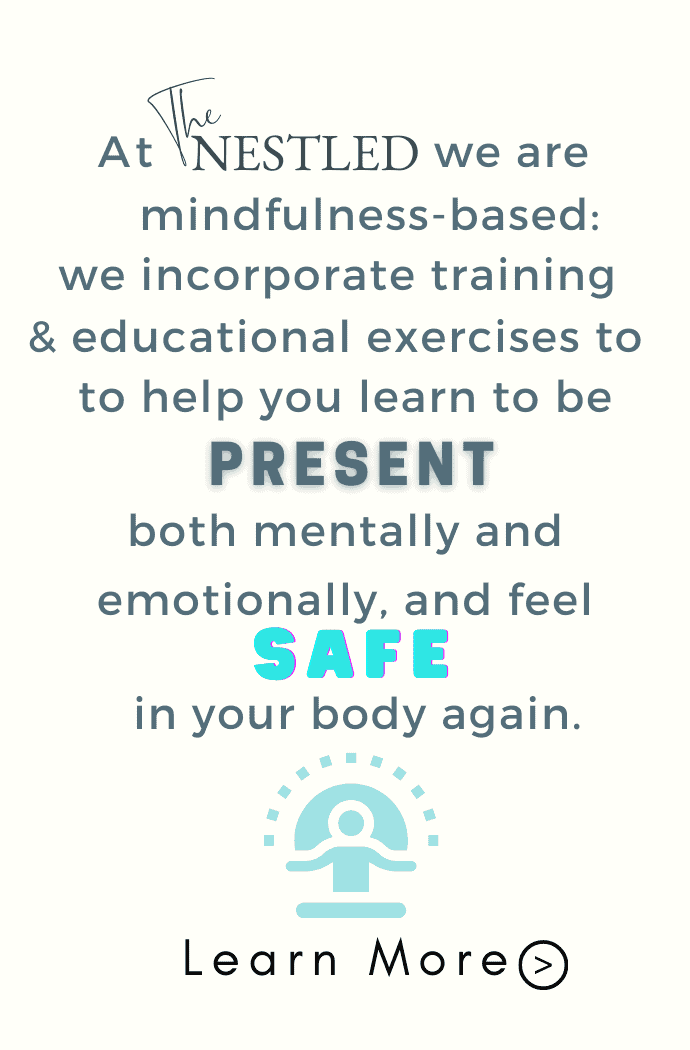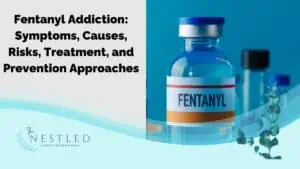Key Takeaway:
- Outpatient addiction treatment programs are a cost-effective option: These programs allow individuals to receive treatment while still maintaining their daily responsibilities, and are typically less expensive than inpatient programs.
- Outpatient addiction treatment offers flexible schedules and access to support groups: With various types of outpatient programs, individuals have the ability to choose a program that fits their unique needs, and many programs offer access to peer-led support groups and recovery programs.
- Aftercare and follow-up strategies are important for lasting recovery: Continuing care programs and relapse prevention techniques can help individuals maintain sobriety and access ongoing support for long-term recovery.
Are you battling with an addiction and unsure about the next step? Outpatient addiction treatment is a viable option. You can get the help you need while staying in your daily routine. Let’s learn more about this treatment option and how it can benefit you.

Outpatient Addiction Treatment Programs: An Overview
Outpatient addiction treatment programs can be a game-changer for those seeking help in overcoming addiction. In this part of the article, we’ll take a closer look at the different types of outpatient addiction treatment programs and what each one entails. The first sub-section will define outpatient addiction treatment programs, so you’ll have a solid understanding of what this type of treatment entails. We’ll then move on to explore the different types of outpatient programs that are available and what sets them apart from one another. By the end of this section, you’ll feel more informed and confident in choosing an outpatient addiction treatment program that is the right fit for you or your loved one.
Defining Outpatient Addiction Treatment Programs
Outpatient addiction treatment programs are an essential part of the drug and alcohol rehabilitation process. These programs offer more flexibility for patients seeking treatment without interrupting their routine life. Defining outpatient addiction treatment programs means explaining how these programs differ from inpatient care guidelines. Outpatient addiction treatment programs provide a customized plan for each patient to meet their individual needs to beat addiction.
Outpatient addiction treatment programs work best when the severity of substance abuse is lower, and there is less risk of relapse, indicating that the patient can maintain regular contact with medical professionals. The participants get access to addiction specialists and other mental health professionals who provide support throughout the rehabilitation process. The sessions may consist of group therapy, individual counseling, medication-assisted treatment (MAT), or educational classes on drug abuse.
Despite being a widely known option for those trying to recover from substance abuse issues, some rare forms of outpatient substance-abuse service exist (like community-based services such as Churches or Temples). With significant progress in mobile healthcare technology taking place around the world, rehab centers increasingly use telehealth facilities so that patients can now receive services online through personal devices such as Smartphones or Tablets in the comfort of their homes remotely.
According to a report by NCBI – “Outpatient psychiatry clinics have been incorporating telemedicine into their practice for approximately twenty years”. Reports indicate that Telepsychiatry models are considered standard forms of delivering outpatient psychiatric care covering remote areas containing inadequate representative encounters. Telehealth aims to improve patients’ convenience [i.e., reduced transportation distance and wait time].” Indeed, this era has seen most rehab centers implementing both In-person and online modes via Telemedicine 24/7 availability options.
Different Types of Outpatient Programs to Choose From
There are a variety of addiction treatment programs to choose from, and outpatient programs have become increasingly popular due to the convenience they offer. Instead of checking into a residential facility, patients can receive treatment while still living at home and continuing with their daily life.
Different types of outpatient programs cater to different needs and levels of intensity. Intensive outpatient programs (IOPs) provide a high level of care and may be recommended for those who require more structure and support, while standard outpatient programs may be better suited to those who need less intensive treatment.
Outpatient programs provide flexibility in scheduling, allowing patients to choose from morning or evening sessions, as well as the frequency of visits. This is particularly helpful for individuals with work or family commitments that may prevent them from participating in a residential program.
It’s important to note that outpatient treatment is not suitable for everyone; those with severe addiction or co-occurring mental health disorders may benefit more from residential care. However, for those who do choose an outpatient program, the benefits can include cost-effective treatment and access to ongoing support groups even after completing the program.
Pro Tip: When choosing an outpatient program, consider factors such as location, hours offered, staff qualifications and experience, success rates, and overall philosophy of care. It’s important to feel comfortable with the facility and trusting in its ability to support your recovery journey.
Hook: Ready to learn more about why outpatient addiction treatment might be right for you? Check out our next section on the advantages it can offer.
Advantages of Outpatient Addiction Treatment Programs
As someone who values flexibility and affordability, I’ve found that outpatient addiction treatment programs can offer immense benefits to those seeking recovery. In this section, we’ll explore some of the advantages of choosing outpatient treatment over inpatient care.
First, we’ll discuss the cost-effective nature of outpatient treatment, which can help make recovery attainable for those without the resources to pay for expensive inpatient programs. Next, we’ll talk about the flexibility of outpatient treatment schedules and how this can be a game-changer for those with demanding work or family obligations.
Finally, we’ll look at the added benefits of access to support groups and peer-led recovery programs, which create a network of accountability and understanding throughout the recovery journey.

Cost-effective Treatment Option
As someone who has witnessed firsthand the burdensome cost of addiction treatment, I have come to appreciate the advantages of a Cost-effective Treatment Option. Outpatient addiction treatment programs provide an affordable and accessible option for those seeking help.
Firstly, outpatient addiction treatment programs allow patients to continue to attend work or school while receiving care. This means that their income sources are not disrupted, which is especially important for those who cannot afford to take time off work. Secondly, outpatient programs typically do not require any hospitalization, resulting in lower medical bills and overall costs. Lastly, because these programs are often partially covered by insurance, they can significantly reduce out-of-pocket expenses for patients and their families.
It’s important to note that just because this treatment option is more affordable does not mean it’s less effective than other options like inpatient care. A study done by the National Institutes of Health found that “Outpatient detoxification programs were as effective as inpatient programs and were associated with lower insurance payments“. This evidence demonstrates that choosing an outpatient program can result in significant cost savings without sacrificing quality care.
With all of these benefits in mind, it’s clear why Cost-effective Treatment Option is such an important consideration for anyone seeking help with addiction. And luckily, there are many options available out there that won’t break the bank.
If you think Cost-effective Treatment Option sounds great so far, just wait until you hear about Flexible Schedules to Meet Your Needs – but more on that later!
Flexible Schedules to Meet Your Needs
Flexible schedules to meet your needs are one of the most significant advantages of outpatient addiction treatment programs. By offering flexibility, these programs allow patients to manage their recovery while keeping up with their personal and professional responsibilities.
These flexible schedules work by providing multiple options for patients to choose from. For instance, individuals attending college or working can opt for evening or weekend sessions. Patients can schedule appointments based on their availability and preference, which helps them stay committed to their treatment plan.
Flexible schedules have been proven successful in ensuring that patients complete their addiction treatment programs without compromising other commitments. Additionally, they provide ease of access and convenience, giving people a little extra control over their lives during a time when everything else may feel out of control.
Furthermore, research shows that individualized care plans have better engagement rates than rigid ones. By tailoring treatments based on individual needs and preferences, patients are more likely to adhere and engage in the program’s activities leading to higher chances of success.
If you’re struggling with substance abuse but finding it hard to prioritize your health because of job or family obligations, outpatient addiction treatment programs offer flexible scheduling options that fit your busy schedule. Don’t let fear stop you from living life free from addiction; seek help today!
Are you ready to take back control of your life? Don’t miss out on the opportunity to start living healthier and happier! Join outpatient addiction treatment today!
Next Up: When it comes to beating addiction, support is vital – here’s how Access to Support Groups and Peer-led Recovery Programs can assist you in achieving long-term sobriety.
Access to Support Groups and Peer-led Recovery Programs
Access to support groups and peer-led recovery programs is one significant advantage of outpatient addiction treatment programs. The ability to connect with others who understand the struggles of addiction can be a beacon of hope for those battling with substance abuse issues.
Support groups offer an excellent opportunity to share one’s experiences and find empathy from peers across different stages of recovery. Access to these programs also offers an avenue for developing healthier relationships and social skills, relieving loneliness that comes with addiction.
Peer-led recovery programs take peer support further by putting control into the hands of individuals recovering from addiction, giving them a chance to develop leadership skills, increase self-esteem, improve communication skills, and contribute positively towards society.
Moreover, these support groups and peer-led recovery programs have different approaches including 12-step meetings, non-12-step alternatives such as SMART Recovery or Refuge Recovery. These avenues provide people in recovery diverse options on how they want to connect with their peers.
I attended my first ever SMART Recovery meeting when I just got out of rehab; I had heard a lot about it and how empowering it could be. Despite being apprehensive at first, seeing other patients sharing similar stories gave me hope for the future. The connection was real, nothing like I experienced before – It struck me that I was not alone on this journey. I am glad I had access to that support group as the experience contributed significantly to my ongoing success in sobriety.
Talking about limitations – don’t go there! Let us consider another interesting aspect: Cost Analysis Of Outpatient Addiction Treatment Programs.
Limitations of Outpatient Addiction Treatment
Outpatient addiction treatment is a popular choice for many because it allows for flexibility and independence. However, there are some limitations to outpatient treatment that are important to consider. In this section, we’ll dive into some of the key limitations of outpatient addiction treatment. We’ll explore the lack of round-the-clock medical assistance, the increased risk of relapse, and the limited access to medical intervention that can come with outpatient treatment. It’s crucial to weigh the benefits and drawbacks of each treatment option to find the best fit for your unique situation.
Lack of Round-the-clock Medical Assistance
It’s no surprise that one of the major limitations of outpatient addiction treatment is the lack of round-the-clock medical assistance. Many individuals who seek treatment for addiction may require immediate medical attention at any given time. Unfortunately, most outpatient programs do not offer 24/7 medical care.
The lack of constant medical supervision can be attributed to various factors. One primary reason could be the high cost associated with staffing healthcare professionals around the clock. Additionally, outpatient programs usually have fewer resources compared to inpatient facilities, which can make it challenging to provide round-the-clock medical care.
It’s essential to note that outpatient addiction treatment still strives to provide adequate care and support for those who need it. Most programs incorporate regular check-ins with healthcare providers and support groups, which indeed offer a sense of guidance for patients seeking help.
However, despite these measures, outpatient addiction treatment does come with its limitations in terms of providing constant medical support. There may be situations where a patient may require immediate medical attention or oversight that cannot be addressed right away due to limited resources during certain hours.
Without comprehensive and continuous access to necessary medical care, individuals undergoing outpatient addiction treatment may feel like they are missing out on crucial care when they need it the most. These feelings can lead them to delay or refuse treatment altogether, leading to detrimental consequences.

Increased Risk of Relapse
The journey of addiction recovery can be fraught with challenges, including the risk of relapse. In outpatient addiction treatment, this risk is heightened due to several factors.
Increased risk of relapse in outpatient addiction treatment occurs when individuals are exposed to triggers or have a lack of support and accountability. Outpatient programs often allow patients to return home each day and continue their daily routines, which may include being around people or situations that trigger their addictive behaviors. Additionally, outpatient programs often involve less intensive counseling and support, leading to a lack of accountability for patients.
Moreover, individuals who choose outpatient addiction treatment may struggle with mental health issues such as anxiety, depression, or trauma. These underlying conditions can exacerbate the risk of relapse as they work through their recovery process.
Studies have shown that around 40-60% of people who receive outpatient addiction treatment experience a relapse within the first year. This statistic highlights the importance of considering all options for addiction treatment and finding a program that provides adequate support and resources.
If you or a loved one is considering outpatient addiction treatment, it is crucial to do thorough research and understand the potential risks involved. Don’t let fear prevent you from seeking help – instead, use it as motivation to find a program that will provide you with the best chance at long-term recovery.
Don’t let your journey towards sobriety be hindered by an inadequate outpatient program – seek out resources and support that will help you achieve your goals. Maybe limited access to medical intervention can pose another challenge – but don’t worry, we’ve got you covered!
Limited Access to Medical Intervention
The world of addiction treatment is a complex and challenging one, with many barriers to success. One of the most significant challenges facing those seeking addiction treatment is limited access to medical intervention.
Limited access to medical intervention means that people who are struggling with addiction may have difficulty getting the help they need from medical professionals. There are many reasons why this might be the case, including a lack of providers or facilities in certain areas.
In addition, some insurance plans may not cover addiction treatment, making it even more difficult for people to get the help they need. This lack of access can have serious consequences for those struggling with addiction, as it may prevent them from getting the care and support they need to recover.
Despite these challenges, there are still ways to overcome limited access to medical intervention. For example, some healthcare providers offer telemedicine services that allow people to receive treatment remotely. Additionally, community programs and peer support groups can provide a network of support for those in recovery.
With limited access to medical intervention being one major hurdle facing those seeking addiction treatment, it’s important for us as a society to continue exploring new ways of providing care and support. After all, recovery is possible — but only if we’re willing to work together and provide the necessary resources and services for those who need them most.
Various Outpatient Addiction Treatment Programs and Techniques
When I was struggling with addiction, I didn’t know where to turn for help. Eventually, I discovered outpatient addiction treatment programs, which provided me with the support and resources I needed to begin my journey to recovery.
In this section, we’ll take a closer look at some of the various outpatient addiction treatment programs and techniques available. Specifically, we’ll explore the benefits and strategies behind:
- Cognitive behavioral therapy
- Dialectical behavioral therapy
- Group therapy sessions
- Individualized therapy
Each approach has unique strengths that can assist individuals in overcoming addiction and maintaining long-term recovery.
Cognitive Behavioral Therapy
Have you ever heard of Cognitive Behavioral Therapy? This type of therapy is a popular technique used in addiction treatment programs, particularly in outpatient settings.
It works by identifying and changing negative patterns of thought and behavior that lead to addiction. Essentially, cognitive behavioral therapy helps individuals retrain their brain to think more positively and make positive choices.
What sets cognitive behavioral therapy apart from other forms of talk therapy is its focus on the present moment. Rather than delving into past traumas or experiences, it concentrates on the here and now. It enables individuals to recognize how their thoughts and actions can impact their current state of mind and behavior.
Interestingly, cognitive behavioral therapy has been shown to be effective in treating a variety of mental health conditions beyond addiction, including depression and anxiety disorders.
According to the Substance Abuse and Mental Health Services Administration (SAMHSA), “Research consistently demonstrates CBT’s efficacy in treating substance use disorders.” So not only does it work for addiction treatment programs, but it has been scientifically proven as an effective method for recovery.
Ready to learn about another powerful tool for addiction treatment? Keep reading…
Dialectical Behavioral Therapy
If you’re looking for a form of therapy that can help you regulate your emotions and improve your interpersonal relationships, Dialectical Behavioral Therapy (DBT) may be what you need. Developed by psychologist Marsha Linehan in the 1980s, DBT is a cognitive-behavioral therapy that combines mindfulness techniques with problem-solving strategies.
DBT is effective for a variety of mental health concerns, including substance use disorders, depression, anxiety, borderline personality disorder, and eating disorders. It teaches coping skills through four main modules: mindfulness, emotion regulation, distress tolerance, and interpersonal effectiveness. The goal is to help individuals develop a balance between acceptance and change.
While DBT was initially developed for borderline personality disorder (BPD), it has since been adapted to treat other conditions as well. Research has shown that DBT reduces suicidal behavior and improves quality of life in individuals with BPD. It has also been found to be effective in reducing substance use among people with addiction.
One interesting aspect of DBT is its focus on dialectics – the idea that two apparently opposing views can both be true at the same time. This approach encourages individuals to explore their beliefs and assumptions in order to find solutions to problems that are not black-and-white.
If you’re considering trying DBT, here are some suggestions based on my experience as a therapist: Start with mindfulness practices like breathing exercises or body scans; these can help ground you when you’re feeling overwhelmed. Practice opposite action; this involves acting opposite to what an emotion might otherwise dictate (e.g., doing something productive instead of withdrawing when feeling sad). Work on improving communication skills like expressing your needs clearly and listening actively.
Now that you’ve learned about how DBT can help you navigate life’s challenges more effectively from the inside out, let’s move on to group therapy sessions. Ready for some more self-exploration?
Group Therapy Sessions
Group therapy sessions are one of the most commonly used approaches in outpatient addiction treatment programs. These therapy sessions bring together a group of individuals who are all struggling with similar issues or addictions, and these groups usually meet on a regular basis with a trained therapist to work through their individual problems together.
In group therapy, participants share their experiences and feelings with each other in a supportive, non-judgmental environment that is conducive to healing. Group therapy sessions provide many benefits including increased self-awareness, new coping skills, and support from others who have similar struggles. Hearing other people’s stories can also help participants gain insight and develop empathy, which can lead to deeper connections with others.
Group therapy sessions can also offer valuable information about addiction recovery as a whole by providing access to resources such as readings on recovery and sober social activities. For instance, it is not uncommon for peer-led organizations such as Alcoholics Anonymous or Narcotics Anonymous to be incorporated into the program design offering additional support beyond the clinical setting.
It’s important to remember that attending outpatient addiction treatment programs is not just for those at rock bottom but also for those wanting continuity of care after an initial intensive level of treatment has been completed. Addiction recovery is often not linear, and continued participation in group therapy sessions can help reduce relapse rates among participants.
If you’re thinking about joining an outpatient program that includes group therapy sessions but feel anxious or unsure about taking this step, know that you are not alone- Many people feel similarly when starting out. Nevertheless, exploring this type of addiction recovery format will empower you towards overall growth and success on your road towards personal change.
With the benefits of group therapy being set aside momentarily- let me reframe the future heading:
“Individualized Therapy” allows you to address areas unique to you – helping ensure you receive personalized care tailored precisely around your needs. Keep reading.
Individualized Therapy
Individualized Therapy is an approach to addiction treatment that focuses on treating each patient as a unique individual with their own set of needs and circumstances. It involves tailoring the treatment plan to meet the specific needs of each person, taking into account factors such as their medical history, family history, personal preferences, and life circumstances.
Individualized Therapy can be broken down into four main points. Firstly, it involves a thorough assessment of the individual’s physical and mental health as well as their social situation. Secondly, it recognises that addiction affects people differently and therefore requires different types of treatment approaches. Thirdly, it considers co-occurring conditions like anxiety or depression and integrates them into the overall care plan. Lastly, it is an ongoing process that involves adapting treatment plans as needed.
Valuable information about Individualized Therapy is that it recognises that addiction is not just a physical disease but instead affects every aspect of a person’s life. Therefore, this approach addresses all aspects of the disorder rather than just focusing on one area like substance use or mental health. Furthermore, studies have shown that Individualized Therapy increases the likelihood of successful outcomes for those in recovery.
A true history about the implementation of Individualized Therapy dates back to the 1970s when researchers began exploring alternative treatments for substance use disorders. They found that certain patients responded better to specific interventions, indicating that a personalised approach was necessary to achieve meaningful results.
Looking ahead to our next section – Importance of Aftercare and Follow-Up Strategies – I must confess I was hesitant at first to believe in these additional steps so essential for treatment success until they showed me how following up after completing rehab with support groups increased lifelong outcomes tenfold!
Importance of Aftercare and Follow-up Strategies
In this portion of the article, we’ll discuss the importance of aftercare and follow-up strategies for those seeking outpatient addiction treatment. We’ll dive into continuing care programs that offer long-term support for recovery, learn about relapse prevention techniques to maintain sobriety, and explore ongoing sources of support that can help ensure lasting recovery. With the right aftercare plan and support system in place, outpatient addiction treatment can be incredibly effective in achieving sustained recovery.
Continuing Care Programs for Long-term Recovery
Continuing Care Programs for Long-term Recovery are an essential aspect of addiction treatment that provides post-rehabilitation support and guidance to individuals in the recovery phase. These programs enable patients to maintain their sobriety and prevent relapses by providing individualized case management, group therapy sessions, medical care, psychiatric support, and family counseling.
The programs’ approach is tailored to meet each person’s unique needs based on their addiction history, medical background, psychiatric condition, social environment, and personal goals. They work by creating a collaborative therapeutic environment that fosters hope, self-awareness, accountability, and motivation for sustained recovery. The continuity of care also ensures that individuals receive consistent guidance as they transition back into their communities.
Continuing Care Programs for Long-term Recovery play an indispensable role in promoting long-term outcomes since quitting drugs or alcohol is just the first step towards a new life. Recovery is an ongoing process that requires continual support and follow-up care to keep one’s commitment to sobriety. Studies have shown that individuals who participate in continuing care programs after completing initial addiction treatment are more likely to remain abstinent than those who do not.
Pro Tip: Remember that recovery is a journey; it requires effort, patience, and perseverance. Be compassionate towards yourself throughout the process and embrace the challenges as opportunities for growth instead of setbacks.
So what happens when you have accomplished your goal of maintaining sobriety? Is there more you can do to ensure you stay on track? Let’s dive into Relapse Prevention Techniques to Maintain Sobriety!
Relapse Prevention Techniques to Maintain Sobriety
Relapse Prevention Techniques to Maintain Sobriety are crucial for individuals who have undergone addiction treatment. These techniques help people to maintain their sobriety and prevent them from falling back into their addiction. Relapse prevention is a process that involves identifying triggers, avoiding high-risk situations, developing coping skills, and maintaining support systems even after the completion of treatment.
The following six techniques are proven to be effective in preventing relapse:
- Self-care: taking care of oneself physically and emotionally.
- Identifying triggers: understanding what might cause one to relapse.
- Developing coping skills: finding healthy ways to deal with stress or difficult emotions.
- Avoiding high-risk situations and relationships: staying away from people, places, or things that could lead to relapse.
- Continuing therapy or support groups: maintaining connection with others who understand the challenges of recovery.
- Practicing self-reflection: regularly reflecting on one’s progress, goals, and challenges.
Relapse prevention also involves setting achievable goals and expecting setbacks. It is important not to beat oneself up for experiencing cravings or relapses but rather learning from them. One should have a plan already in place when these setbacks occur so they can regain control quickly.
Pro Tip: One effective method that has helped me prevent relapse is by keeping a journal. Whenever I feel a craving or encounter a triggering situation, I write it down along with my thoughts and emotions surrounding it. This allows me to process these experiences effectively and develop better strategies for preventing future relapses.
Ongoing Support for Lasting Recovery
Ongoing support for lasting recovery is an important aspect of addiction treatment. This type of support helps individuals to maintain sobriety and avoid relapse after completing their initial treatment. It involves regular check-ins, counseling, and other resources to ensure that the individual remains connected with their sober community and has access to the tools they need to stay on track.
The goal of ongoing support is to provide a foundation for lasting recovery by addressing any issues or challenges that may arise after the initial treatment period. The reasons behind its effectiveness are multifaceted – it provides accountability, encourages continued growth, and helps individuals develop healthy coping mechanisms. By remaining connected with others in recovery, participants have a supportive network in place that can help them stay sober and navigate challenging situations.
One valuable and rare form of ongoing support is known as aftercare planning. Aftercare planning involves developing a personalized plan for what steps someone will take after completing treatment. This could include joining a sober living program, continuing outpatient therapy, or attending support group meetings regularly. By having a clear plan in place, individuals are better able to stay focused on their recovery goals and continue making progress.
If you or someone you know has completed addiction treatment but hasn’t yet engaged in ongoing support activities, consider taking action today. Missing out on this critical piece of care could put your hard-won sobriety at risk. Reach out to your healthcare provider or local addiction recovery center to learn more about which resources may be available in your area – you’ll be glad you did!
Embracing Flexibility in Recovery: The Power of Outpatient Care
Outpatient care for addiction offers a flexible, yet structured approach to recovery, allowing individuals to receive treatment while maintaining their daily responsibilities. It’s a testament to the evolving landscape of addiction care, recognizing that recovery doesn’t have a one-size-fits-all solution. If you or someone you cherish is seeking a path to sobriety without the confines of inpatient treatment, consider The Nestled, a leading drug and alcohol treatment center in Las Vegas. Their dedicated team provides tailored outpatient programs designed to fit into your life, ensuring you get the support you need on your terms. Embrace the opportunity for a brighter tomorrow and reach out to The Nestled today.
Five Facts About Outpatient Addiction Treatment:
- ✅ Outpatient addiction treatment programs allow individuals to receive treatment while living at home and continuing to work or attend school. (Source: National Institute on Drug Abuse)
- ✅ Outpatient treatment can include individual counseling, group therapy, medication-assisted treatment, and other types of behavioral therapy. (Source: American Addiction Centers)
- ✅ Outpatient treatment is typically less expensive than inpatient treatment and can be covered by insurance. (Source: Verywell Mind)
- ✅ Outpatient treatment can be less intensive than inpatient treatment and may not be appropriate for individuals with severe addiction or co-occurring disorders. (Source: Substance Abuse and Mental Health Services Administration)
- ✅ Outpatient treatment can be a good option for individuals who have completed residential treatment and need continued support, as well as for those who have mild to moderate addiction or who are in the early stages of addiction. (Source: Addiction Center)
FAQs about What Is Outpatient Addiction Treatment?
What Is Outpatient Addiction Treatment?
Outpatient addiction treatment is a type of addiction treatment program that allows individuals to attend therapy and counseling sessions while continuing to live at home. This type of treatment is for individuals who do not require 24-hour care and medical supervision.
Who Should Consider Outpatient Addiction Treatment?
To consider Outpatient addiction treatment a person should have a mild to moderate addiction and do not require medically supervised detoxification. It is also a good fit for those who cannot leave their job or family for an extended period.
What are the Different Types of Outpatient Addiction Treatment?
The different types of Outpatient addiction treatment include partial hospitalization programs, intensive outpatient programs, and traditional outpatient programs. These programs vary in the length of treatment and the level of support provided.
What Services are Provided in Outpatient Addiction Treatment?
Services that are provided in Outpatient addiction treatment include a range of services such as individual therapy, group therapy, family therapy, medication management, relapse prevention, and holistic therapies like meditation, yoga, or art therapy.
What Are the Benefits of Outpatient Addiction Treatment?
The benefits of Outpatient addiction treatment allows individuals to receive high-quality care and support while also maintaining their daily responsibilities. It is a flexible treatment option that enables individuals to retain their privacy and independence, which can be empowering during the recovery process.
How Long Does Outpatient Addiction Treatment Last?
The duration of outpatient addiction treatment varies depending on the individual’s needs and the severity of their addiction. Typically, treatment can last anywhere from a few months to a year or more, with the frequency and intensity of sessions decreasing as progress is made.








